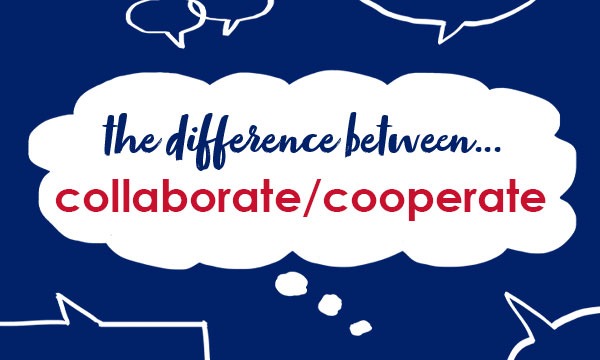This week we are looking at two words which may be confused by learners of English: collaborate and cooperate.
collaborate

When people collaborate on a project, they work together in order to produce something. For example, two writers can collaborate to produce a single piece of writing.
Anthony and I are collaborating on a paper for the conference.
The film was directed by Carl Jones, who collaborated with Rudy de Luca in writing it.
cooperate

When people cooperate, they help each other.
This is an example of the way in which human beings can cooperate for the common good.
If you cooperate with someone who asks for your help, you help them.
The editors agreed to cooperate.
I couldn’t get the RAF to cooperate.
Find out more in our English Usage article.
This blogpost is based on Collins COBUILD English Usage, written for learners of English. For more examples of English usage points, please visit: https://grammar.collinsdictionary.com/english-usage.
All opinions expressed on this blog are those of the individual writers, and do not necessarily reflect the opinions or policies of Collins, or its parent company, HarperCollins.




collins_dictionary_official
The home of living language. #wotd #wordlovers #collinsdictionary
Read our word of the week definitions and blog posts: